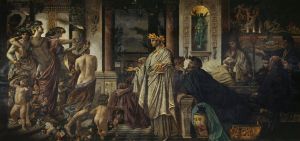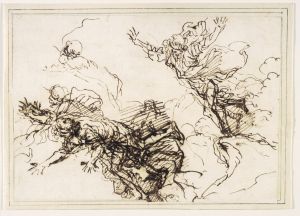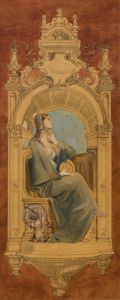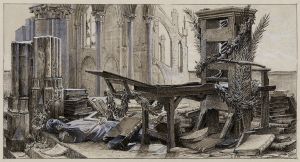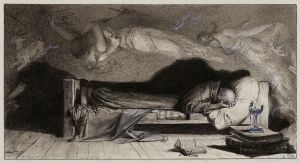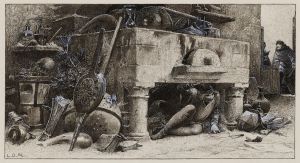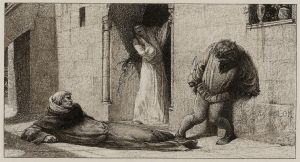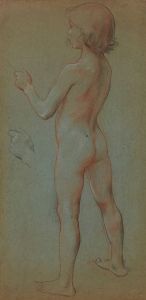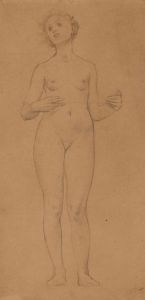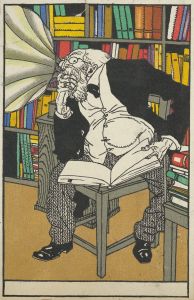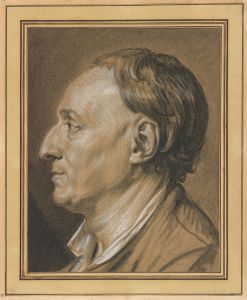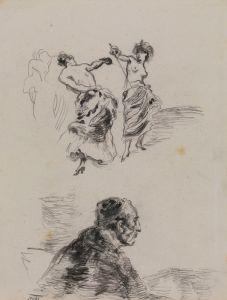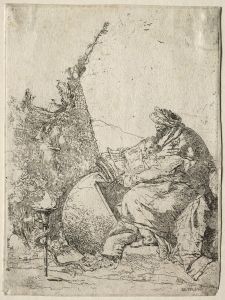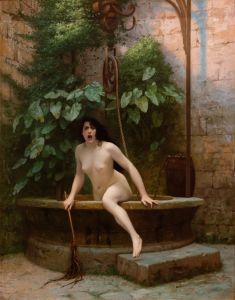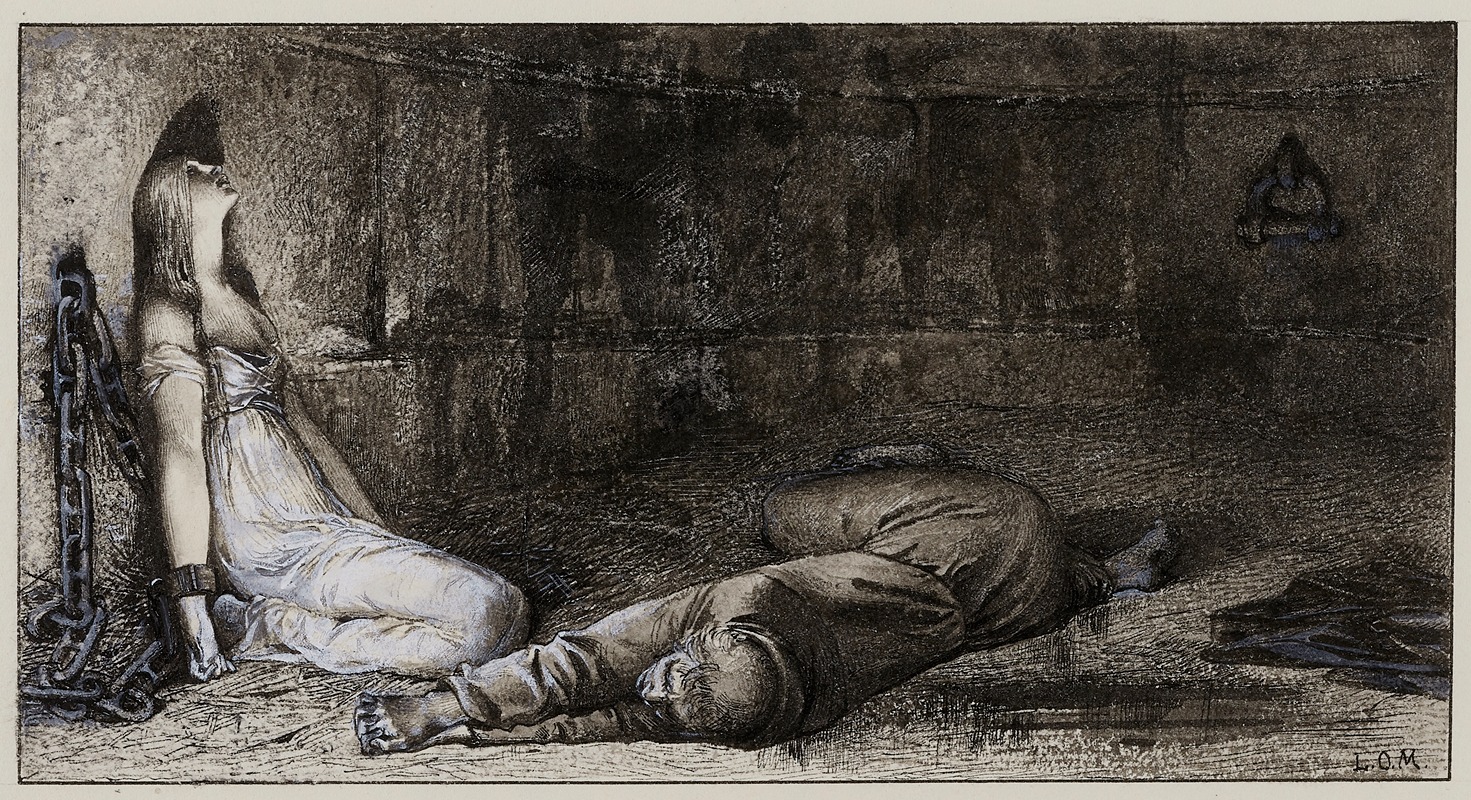
Lasciate ogni speranza
A hand-painted replica of Luc-Olivier Merson’s masterpiece Lasciate ogni speranza, meticulously crafted by professional artists to capture the true essence of the original. Each piece is created with museum-quality canvas and rare mineral pigments, carefully painted by experienced artists with delicate brushstrokes and rich, layered colors to perfectly recreate the texture of the original artwork. Unlike machine-printed reproductions, this hand-painted version brings the painting to life, infused with the artist’s emotions and skill in every stroke. Whether for personal collection or home decoration, it instantly elevates the artistic atmosphere of any space.
Luc-Olivier Merson's painting Lasciate ogni speranza is a notable work by the French academic painter, created in 1869. The title, translated from Italian, means "Abandon all hope," a phrase famously derived from Dante Alighieri's Divine Comedy. Specifically, the phrase appears in the third canto of Inferno, inscribed on the gates of Hell as a warning to those who enter.
The painting reflects Merson's interest in literary and allegorical themes, which was a hallmark of his artistic career. In Lasciate ogni speranza, Merson interprets Dante's vivid imagery, presenting a scene that evokes the despair and solemnity associated with the entrance to Hell. The work is characterized by its dramatic composition and meticulous attention to detail, hallmarks of Merson's academic training and his ability to translate literary sources into visual art.
Merson was a prominent figure in 19th-century French art, known for his historical, religious, and allegorical paintings. He studied at the École des Beaux-Arts in Paris under the tutelage of Gustave Chassevent-Bacques and Isidore Pils. His works often drew inspiration from literature, mythology, and history, and he was highly regarded for his ability to blend narrative depth with technical precision.
Lasciate ogni speranza was exhibited at the Paris Salon of 1869, an annual art exhibition that was a central event in the French art world during the 19th century. The Salon provided a platform for artists to showcase their work to a wide audience, and Merson's painting was well-received for its intellectual depth and artistic execution. The painting's reception helped establish Merson's reputation as a skilled interpreter of literary and historical themes.
The current location of Lasciate ogni speranza is not widely documented, and it is unclear whether the painting is held in a public collection or remains in private hands. Despite this, the work remains an important example of Merson's oeuvre and his engagement with Dante's Divine Comedy, a text that has inspired countless artists across centuries.
Luc-Olivier Merson continued to have a successful career following the creation of this painting, later becoming a member of the Académie des Beaux-Arts and receiving numerous commissions for public and private works. His legacy includes not only his paintings but also his contributions to stained glass design and illustration.





